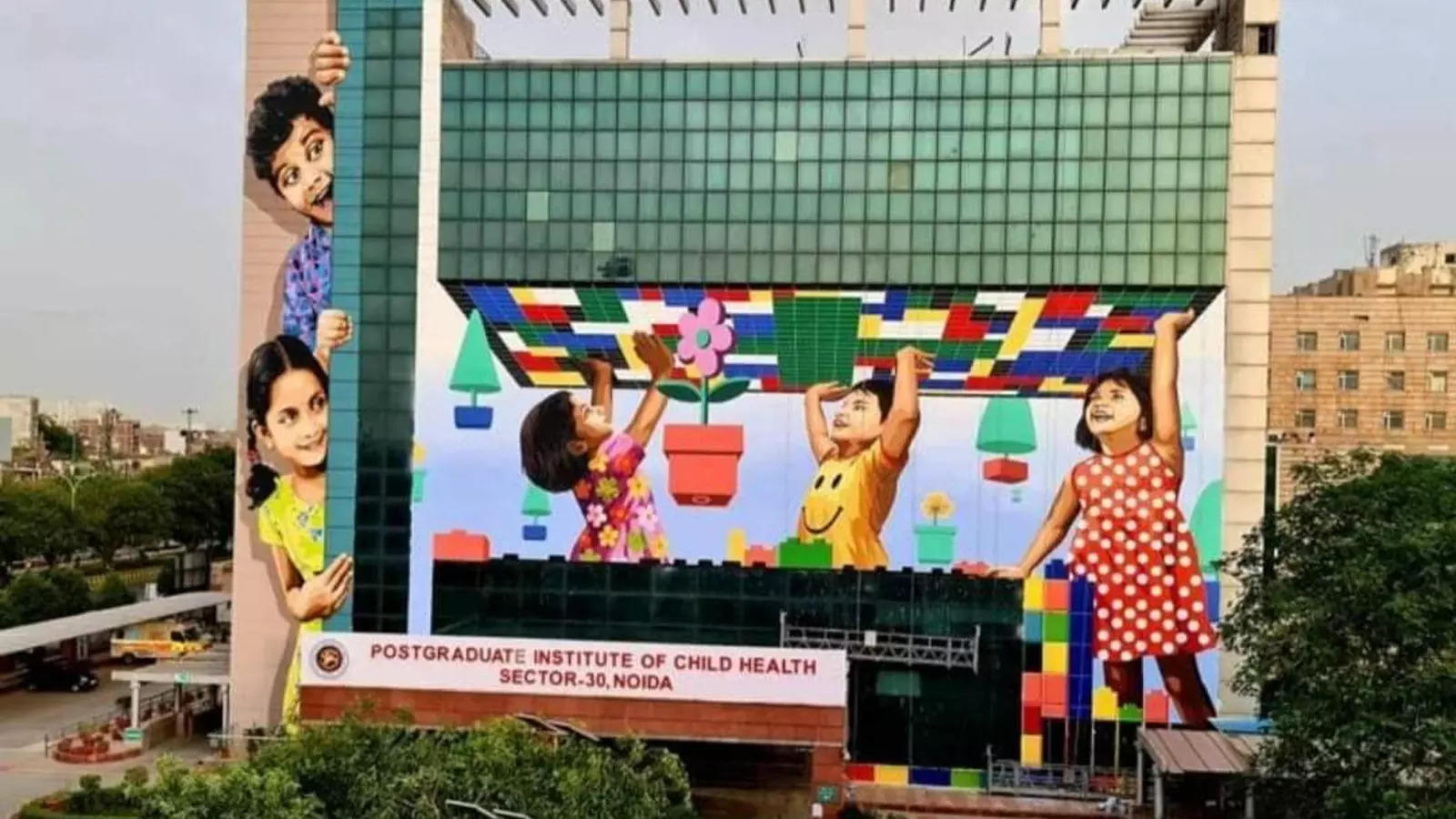NOIDA: The microbiology department at the Post Graduate Institute of Child Health (PGICH) organized a workshop against rising antimicrobial resistance (AMR) on Wednesday. Patients in India have been found to have one of the highest rates of resistance to antimicrobial agents.
The program marked Antimicrobial Resistance Awareness Week, declared by the World Health Organization (WHO) from November 18 to 24 every year.According to the WHO, AMR occurs when bacteria, viruses, fungi, and parasites change over time and become immune to medicines, making infections harder to treat and increasing the risk of illness and death.
According to doctors, most viral infections like diarrhoea and respiratory issues do not need antibiotic treatment, but the over-the-counter purchase of antibiotics creates resistance.
Dr. Saibal Chakravorty at Metro Hospital, Noida, believes that self-medication of antibiotics may lead to inappropriate use due to incorrect dosages and incomplete courses, fostering resistant bacteria. “This jeopardizes individual health by reducing treatment efficacy, contributing to the broader issue of antibiotic resistance, making infections harder to manage on a global scale,” Dr. Chakravorty added.
The misuse or overuse of antibiotics during the COVID-19 pandemic has also contributed to antibiotic resistance, suggests Dr. Pankaj Chaudhary, Senior Consultant, Internal Medicine at Max Hospital, Vaishali.
Dr. Chaudhary added that it is crucial to responsibly use antibiotics to preserve the effectiveness of medication and mitigate the development of resistance.
The chief guest at the event, Dr. Kamini Walia, a senior scientist at the Indian Council of Medical Research, said, “Joint efforts of doctors, patients, and scientists working in the fields of agriculture, animals, plants, and the environment can prevent the misuse of antibiotics so that future generations can fight and win against microbes that develop resistance to antimicrobials.”
“Many low-and middle-income countries (LMICs) face significant challenges in combating the antibiotic resistance crisis. These countries are particularly vulnerable due to limited surveillance and diagnostic capabilities, uncontrolled use of antibiotics in humans and animals, overcrowding in hospitals, insufficient hygiene control, rapid growth in meat and fish production, a higher infection burden, and limited access to expensive second-line or third-line antibiotics,” said Dr. Rajesh Kumar Gupta, from Fortis Hospital, Greater Noida.
The program marked Antimicrobial Resistance Awareness Week, declared by the World Health Organization (WHO) from November 18 to 24 every year.According to the WHO, AMR occurs when bacteria, viruses, fungi, and parasites change over time and become immune to medicines, making infections harder to treat and increasing the risk of illness and death.
According to doctors, most viral infections like diarrhoea and respiratory issues do not need antibiotic treatment, but the over-the-counter purchase of antibiotics creates resistance.
Dr. Saibal Chakravorty at Metro Hospital, Noida, believes that self-medication of antibiotics may lead to inappropriate use due to incorrect dosages and incomplete courses, fostering resistant bacteria. “This jeopardizes individual health by reducing treatment efficacy, contributing to the broader issue of antibiotic resistance, making infections harder to manage on a global scale,” Dr. Chakravorty added.
The misuse or overuse of antibiotics during the COVID-19 pandemic has also contributed to antibiotic resistance, suggests Dr. Pankaj Chaudhary, Senior Consultant, Internal Medicine at Max Hospital, Vaishali.
Dr. Chaudhary added that it is crucial to responsibly use antibiotics to preserve the effectiveness of medication and mitigate the development of resistance.
The chief guest at the event, Dr. Kamini Walia, a senior scientist at the Indian Council of Medical Research, said, “Joint efforts of doctors, patients, and scientists working in the fields of agriculture, animals, plants, and the environment can prevent the misuse of antibiotics so that future generations can fight and win against microbes that develop resistance to antimicrobials.”
“Many low-and middle-income countries (LMICs) face significant challenges in combating the antibiotic resistance crisis. These countries are particularly vulnerable due to limited surveillance and diagnostic capabilities, uncontrolled use of antibiotics in humans and animals, overcrowding in hospitals, insufficient hygiene control, rapid growth in meat and fish production, a higher infection burden, and limited access to expensive second-line or third-line antibiotics,” said Dr. Rajesh Kumar Gupta, from Fortis Hospital, Greater Noida.
Denial of responsibility! Chronicles Live is an automatic aggregator of the all world’s media. In each content, the hyperlink to the primary source is specified. All trademarks belong to their rightful owners, all materials to their authors. If you are the owner of the content and do not want us to publish your materials, please contact us by email – chronicleslive.com. The content will be deleted within 24 hours.


